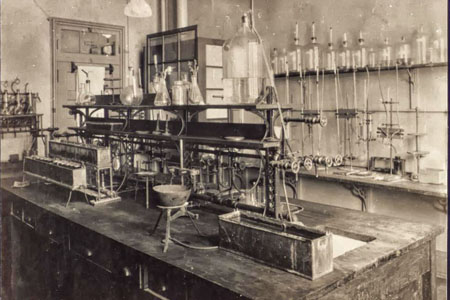Illness and disease affect everyone. Individuals alone cannot prevent illness and disease. To do so it is important to focus on communities, not just individuals. The purpose of public health is to protect communities against illness and disease. This, in turn, helps individuals.
This article is a plain-language summary of Public Health in Canada. If you are interested in reading about this topic in more depth, please see our full-length entry, Public Health in Canada.
What is Public Health?
Public health is a science. The purpose is to protect the health of individuals and communities. Research into disease and prevention of disease is a part of public health. All types of governments in Canada are responsible for public health. The World Health Organization (WHO) is responsible for promoting public health globally.
Factors that Affect Public Health
The goal of public health is to stop people from getting sick. It concentrates on communities, not individuals. It concentrates on finding diseases that can affect communities. Then, it looks for ways to prevent them. It also seeks solutions when diseases spread in communities. Public health does research into the factors that affect health. Some of these factors are education, unemployment, housing and access to food (see Food Insecurity in Canada).
Public Health Activities
To stop people from getting sick, public health involves different activities. These activities include health surveillance, population health assessment and health protection. Disease and injury prevention, health promotion and preparing and responding to health crises are also a part of public health activities.
Health Surveillance
An important part of public health is collecting information. Public health officials gather many different types of information. This includes the number of births and deaths, types of diseases occurring, and the stock of vaccines. This information helps public health officials make policies. These policies are important to preventing disease and responding to disease.
Population Health Assessment and Health Protection
Public health also includes collecting health data. This data helps officials make policies and services.
Disease and Injury Protection
Public health includes physical health and mental health. It hopes to improve both. To do this, much research is done. Public health also aims to prevent injuries (see Injury and Prevention). It focuses a lot on preventing sports injuries and workplace injuries.
Health Promotion and Emergency Preparedness and Response
To promote health, public health officials take part in many activities. They develop public health policies. They work with volunteering agencies and community organizations. Together, they promote healthy lifestyles. They also try to help the poor and improve housing and sanitation. In addition, they make their ideas public by using the media. Public health also makes plans in case of natural disasters and human-made disasters. Natural disasters include floods, earthquakes and disease outbreaks. Human-made disasters include explosives or other dangerous materials.
Public Health Organizations and Responsibilities
International
The WHO is a very important organization. It is responsible for global health. It does research on diseases, tries to prevent disease and responds when there is an outbreak. It has helped to put an end to some diseases, such as polio and smallpox. (See also Canada and the Development of the Polio Vaccine.) Canada is a member of the WHO. It supports it financially.
Public Health Organizations in Canada
The federal government, provincial governments, territorial governments and municipal governments promote public health. They create laws about public health. They give money to public health researchers (see Medical Research). Universities also play a role. They have public health programs (see Medical Education).
Public Health Agency of Canada (PHAC)
PHAC cooperates with governments. It provides funds to governments, volunteer agencies and not-for-profit organizations. It also develops national policies.
Provincial and Territorial Health Agencies
Provinces and territories play a key role in public health. They do research on diseases. They create policies to prevent disease. They develop policies to deal with outbreaks. They also organize immunization programs (see Vaccination and Vaccine Hesitancy in Canada).
Municipalities
Municipalities are especially important to public health. They set up and operate clinics. They provide health inspections. They also coordinate activities with other governments.
Challenges
Public health often does not have the funds it needs. In addition to this, public health and public health officials are often unnoticed or ignored by the public and politicians. So, when there is a health problem, it can be difficult to respond adequately.

 Share on Facebook
Share on Facebook Share on X
Share on X Share by Email
Share by Email Share on Google Classroom
Share on Google Classroom














